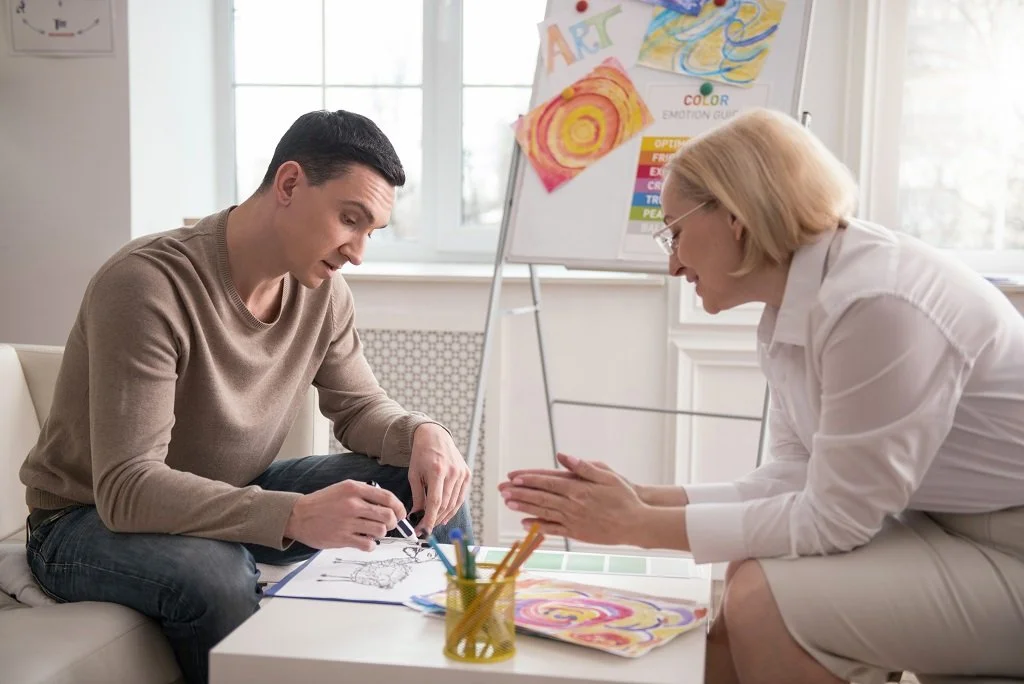ART Therapy in Tampa: What the First Three Sessions Look Like
For many, the journey to healing from trauma and emotional distress can seem daunting. Accelerated Resolution Therapy (ART) offers a promising approach to overcoming these challenges by focusing on rapid and effective relief. At Christian Counseling of Tampa, our skilled therapists guide clients through this therapeutic process with compassion and expertise. As you consider beginning ART therapy, understanding what to expect in the initial sessions can be incredibly helpful in making an informed decision.
ART therapy is designed to reprogram the way distressing memories are stored in the brain, which can significantly reduce symptoms associated with trauma and anxiety. During the first few sessions, clients often experience noticeable changes in how they perceive their past experiences. This transformative process is supported by various therapeutic techniques and a strong therapeutic alliance between the client and therapist. Explore our trauma therapy services to learn more about how ART can be integrated into your healing journey.
In the following sections, we will walk you through what to expect during your first three ART therapy sessions. This overview will provide insights into how each session builds on the last to foster healing and resilience.
Session One: Building Trust and Setting Goals
The first session of ART therapy is all about establishing a connection and setting the foundation for future work. Initially, your therapist will focus on building a trusting relationship, which is essential for effective therapy. They will explain the principles of ART and how it can be beneficial for your specific needs. This introduction helps you feel comfortable and informed about the process.
During this session, you will work with your therapist to identify specific goals for your therapy. These goals are tailored to address the issues you wish to resolve, such as reducing anxiety or overcoming traumatic memories. It's important to approach this session with an open mind and a willingness to share your experiences.
As the session concludes, you and your therapist will have a clear understanding of the path forward. This mutual clarity sets the stage for a productive therapeutic journey.
Session Two: Introducing ART Techniques
In the second session, you will begin to engage with the core techniques of ART therapy. This session is typically more interactive, as your therapist introduces specific ART techniques designed to help reframe distressing memories. The goal is to change the way these memories are stored in your brain, reducing their emotional impact.
Eye movements or other forms of bilateral stimulation, which help to process memories
Voluntary image replacement, where you replace distressing images with positive ones
Relaxation and visualization exercises to promote a sense of calm
Your therapist will guide you through these techniques, ensuring you feel supported and safe throughout. By the end of this session, you may notice a shift in how you perceive certain memories or emotions.
Session Three: Deepening the Process
The third session of ART therapy often involves delving deeper into the therapeutic process. At this stage, you will continue to refine the techniques learned in the previous session, applying them to more complex or deeply rooted issues. This session can be particularly powerful, as it often leads to significant breakthroughs in emotional and mental processing.
Your therapist will encourage you to explore your thoughts and feelings more deeply, using the ART techniques to facilitate this exploration. As you become more adept at using these tools, you may find yourself gaining new insights and perspectives on past experiences.
By the end of the third session, many clients report feeling lighter and more hopeful about their healing journey, having experienced the transformative potential of ART therapy firsthand.
What to Expect After the First Three Sessions
After completing the first three sessions, it's common to feel both empowered and curious about the changes you've experienced. ART therapy is structured to provide quick relief, but it also lays the groundwork for continued growth and healing. Clients often notice a reduction in the intensity of their symptoms and an increased sense of control over their emotional responses.
As you progress, your therapist will work with you to assess your progress and adjust your goals as needed. This ongoing evaluation ensures that your therapy remains aligned with your evolving needs and experiences.
The sense of accomplishment and progress after these initial sessions can be motivating, encouraging you to continue engaging with the therapy process.
How ART Therapy Supports Long-term Healing
ART therapy is not just about immediate symptom relief, but also about fostering long-term resilience and emotional well-being. For many clients, integrating Christian counseling alongside ART provides a faith-based framework for lasting growth. By addressing the root causes of distress and transforming the way memories are processed, ART can have lasting benefits.
Developing coping strategies to handle future stressors
Building a stronger sense of self and confidence
Enhancing emotional regulation and resilience
These elements of ART therapy contribute to a more holistic approach to mental health, supporting sustained recovery and personal growth.
Begin Your ART Therapy Journey in Tampa
Embarking on a journey of healing with ART therapy can be both transformative and empowering. At Christian Counseling of Tampa, we offer both in-person therapy and online sessions to accommodate your needs. Our experienced therapists are committed to providing a supportive environment where you can explore and resolve your challenges.
If you're ready to start your ART therapy journey, contact us to schedule an appointment. Whether you're in Tampa or prefer virtual sessions, our team is here to guide you towards lasting healing and peace. With the right support, you can rewrite your past experiences and embrace a brighter future.



